Oedipus Rex (1967)
Directed by: Pier Paolo Pasolini
Written by: Pier Paolo Pasolini
Starring: Alida Valli, Carmelo Beni, Franco Citti, Silvano Mangano
More Pasolini art house wierdness courtesy of Eureka Entertainment!
HCF REWIND NO.74. OEDIPUS REX AKA EDIPO RI [Italy, 1967]
AVAILABLE ON R2 DVD 24th Sept: from Eureka Entertainment ‘Masters Of Cinema’
RUNNING TIME: 100 mins
REVIEWED BY: Dr Lenera, Official HCF Critic
I pre-war Italy, a young couple are blessed with a son. The father, though, is jealous of the baby and takes him into the desert to be abandoned, at which point we switch to an unspecified time in the ancient world. The child is rescued and brought to King Polybus and Queen Merope of Corinth. They name him Oedipus and bring him up as their own son. of Corinth and raised as their own son. When Oedipus has grown into a young man, he visits the oracle at Delphi and is told that he will kill his father and sleep with his mother. Horrified, he decides to leave Corinth there and then and seek his fortune elsewhere….
Even if you don’t know the story of Oedipus, you have probably heard the Sigmund Freud-invented term “oedipus complex”, meaning a man who has an unhealthy infatuation with his mother, and maybe even the word”oedipal”. The Greek myth is certainly a fascinating and disturbing story, the tale of a very mixed up young man who cannot stomach his fate nor confront truths about his identity, ideas which don’t need the added subjects of patricide and incest to make them universal. It’s the fatalism of Greek Mythology which for me is one of the things that makes it so interesting [well….and the monsters and the gods and the battles etc….]. The myth of Oedipus, who killed his father and married his mother, was adapted by several playwrights in Ancient Greece including Homer, Aeschylus and Euripides though the most famous version is a set of three plays by Sophocles.
For his version, Pier Paolo Pasolini seems to have taken the title of the first of them, Oedipus The King, and then adapted the whole story in his own way. Though the majority of the film is indeed the famous tale, he treats it almost as a dream and bookends it with two sections set in pre-war Italy. It’s certainly an intriguing concept. I don’t know if it actually adds to the story, but it certainly adds to the infectious oddness of Pasolini’s film. It also adds what some have said is and what initially looks like a slight autobiographical element, though actually Pasolini was not abandoned as a child [though his father was imprisoned for gambling debts]. There is no doubt that Pasolini’s feelings of being an outsider, which seem to recur throughout his work, make their presence known here and actually seem more dominant in this particular film than in any of his others I have have. Amongst other things, Pasolini was often regarded with contempt for being homosexual; he was even expelled from the army because of it, and I wonder I he felt some self-loathing because of this or at least felt like an outcast?
The first few scenes are simply beautifully photographed [Guiseppe Ruzzolini again], conveying that sense of nostalgia we probably all have for a childhood that maybe never was. There is a wonderful low-angle shot of children running around a field, enjoying summer bliss, and then a lengthy panning shot looking up at the trees, representing I suppose the baby looking at them. Of course the oedipal aspects are brought in very quickly, especially with a very daring scene where Jocasta suckles her son and gazes at the camera for what seems to be like an eternity, revealing changing emotions. Could that actually be arousal showing on her face, for at least a few seconds anyway? Silvano Mangano, who would go on to star in Thereom for the director, gives what is probably the stand-out performance of Oedipus Rex and is especially brilliant here, revealing changing emotions with the most subtle of expressions. Her acting contrasts greatly with that of Franco Citti as Oedipus, who goes totally over the top and perhaps too much at times, such as when he encounters, unknowingly, his father, and just yells!
The main part of the film is played out, in typical Pasolini fashion, amidst desolate landscapes with the most minimal of production design. He likes to film amongst the countless crumbled ruins in Italy and in the mountainous areas between many Italian cities. Often we do see towns of some kind in the distance, but they usually remain in the distance. The cities of Corinth and Thebes are represented by writing carved into rocks in the ground and lots of people milling about. Watching Oedipus Rex, I was made very aware of how so many major motion pictures spend a huge amount of effort getting elaborate backgrounds [and of course in the days of Oedipus Rex there was no CGI so everything had to be built], yet it’s not always necessary. Pasolini’s minimalist approach achieves so much with so little. In this film, he puts the story, and its themes, up front, and yet the bleak locales and total lack of gloss add their own important element. There is a weird feeling of authenticity about what we are watching, as if we really are watching a tragedy being enacted thousands of years ago.
The story proceeds in the grim manner we expect [may I add that there is sex but it’s quite discreet] and finally ends back in Italy, with a final scene which makes little narrative sense but has a pleasing bittersweet feel to it. Pasolini doesn’t go in for characters expressing their thoughts with camera-faced soliloquies and instead shows their thoughts in black lettering in a white background, which doesn’t quite work but you get used to it. Certain details about the story are omitted, such as the riddle asked by the Sphinx, originally a lion with eagle’s wings and the head of a human female but now reduced to a man in a scary mask, which seems appropriate. Talking of head-gear, this film features some of the most outlandish head-wear I’ve ever seen in a film. Some people look like they’re wearing hats made of grass and shells, while two other hats have wings on. When Oedipus becomes King, he sports a hat so tall it ought to, by rights, fall off at any time.
This film employs a variety of shooting styles, from handheld to a fixed camera, helping to keep the pace moving, and sometimes things are filmed in a really unusual way; when Oedipus kills his father, the sun is so bright you can’t really see what is happening. It has a fascinating cast, including the hypnotic Alida Valli as the woman who adopts the young Oedipus, and Julian Beck as the seer Tiresias. You may not have heard of Beck, and he doesn’t appear to have been in many films, but if you’re a horror fan you’ll surely know him as the terrifying priest from Poltergeist 2: The Other Side. Here, despite only being in a few scenes, he is simply stunning as a man who is tormented by knowing what will happen to everyone he meets. A brilliant actor, I would say, even after seeing just two of his screen performances. Oddly, the film’s credits don’t say who wrote its music, but the score is nicely calm and almost religious in feel for much of the time, though it sometimes lapses into total weirdness such as a portion which almost sounds like country and western! Somehow it doesn’t feel out of place though. Overall I thoroughly enjoyed Oedipus Rex: I wouldn’t automatically say it should be someone’s first Pasolini, but perhaps you should really just jump in there and immerse yourself in his unique world. Even if you don’t like what you see, you won’t have seen anything like it. I found it quite hypnotic.

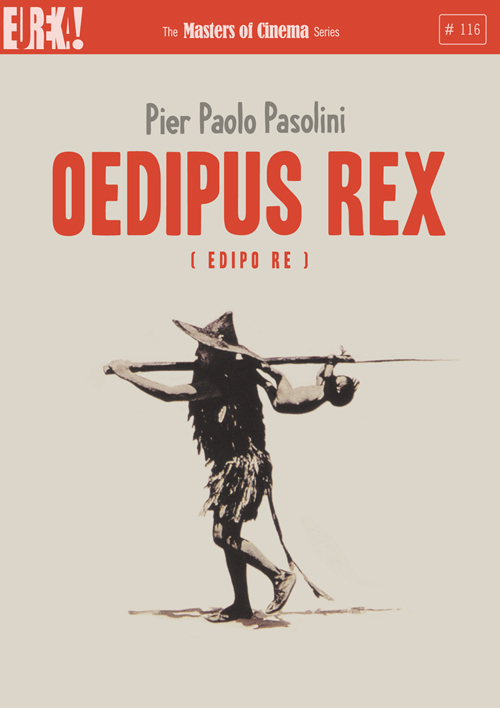
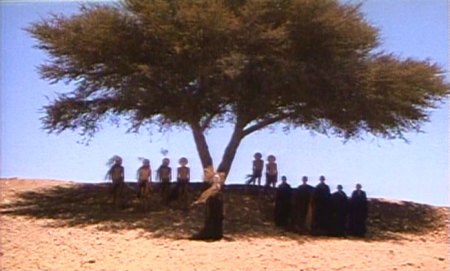
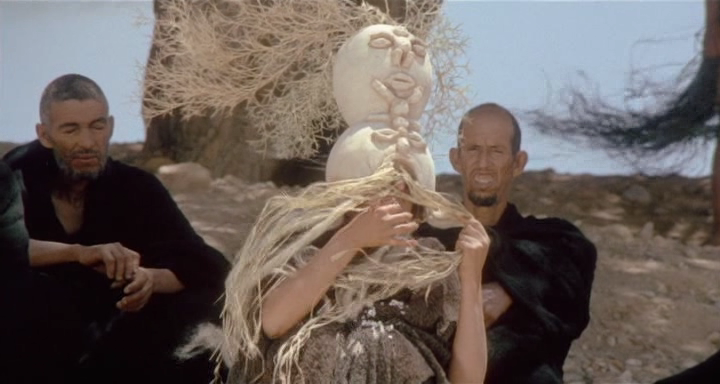




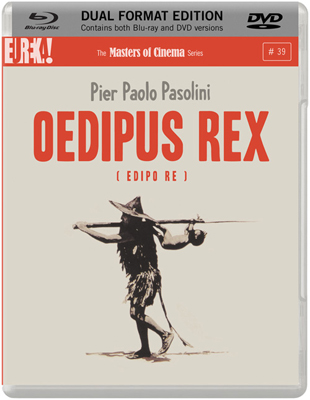

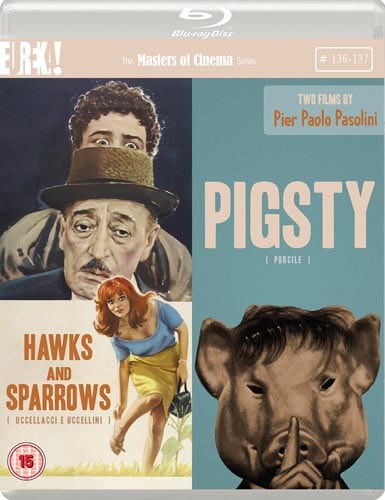
Be the first to comment